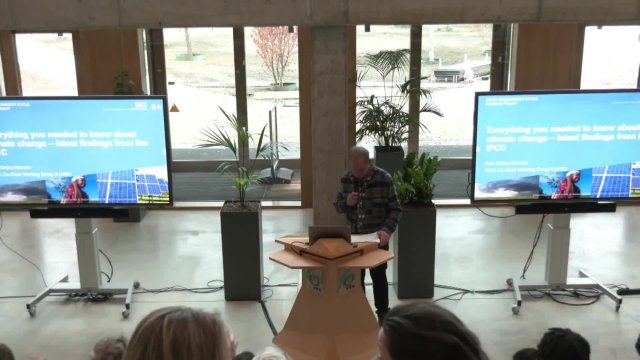On 8 November, Debra Roberts, a part-time professor at the University of Twente, gave the first Climate Colloquium titled: ‘Everything you need to know about climate change – latest findings from the IPCC’. Serving as both a Co-Chair of the Intergovernmental Panel on Climate Change (IPCC) and a practitioner in local government in Africa, she emphasized the urgency of taking climate action: “It's no longer a matter of ‘if’ we will overshoot the 1.5-degree global warming threshold but rather ‘when’. This scenario represents a dangerous world, one we have never encountered. We need to think now about how to act then.”
In the latest report, the IPCC has warned that emissions must peak before 2025 and that we have to reduce global carbon emissions by 60% by 2035 if we are to limit global warming to 1.5oC. “Theoretically possible, but not very likely in my opinion. We’re currently investing 7 trillion dollars in fossil fuel subsidies. How likely is it that we will stop those investments in the following two years? Common sense dictates it’s not very likely we will do that,“ explains Roberts.
Plan B
According to Roberts, this means we will have to start thinking about a plan B. Researchers will have to ask new research questions: “Engineers might need to think about the challenge to the resilience of infrastructure, sociologists may need to think about the win-lose situations: what social safety nets one would need during that time.”
Sharing knowledge
“If you think about it, in many cases, the Global South is living in a suboptimal world like that right now. The Global North can learn a lot from the experience and knowledge on these matters from the Global South”, says Roberts. That means the North has to be open to engaging with the knowledge emerging from the lived experiences of people in the Global South. “It is not written in the form of reports or peer-reviewed papers, but mostly experiential knowledge.”In her talk, Prof. Roberts addressed the profound disparities between our aspirations and actions in combating climate change. She explored the critical questions: What are we doing, and what should we be doing?







